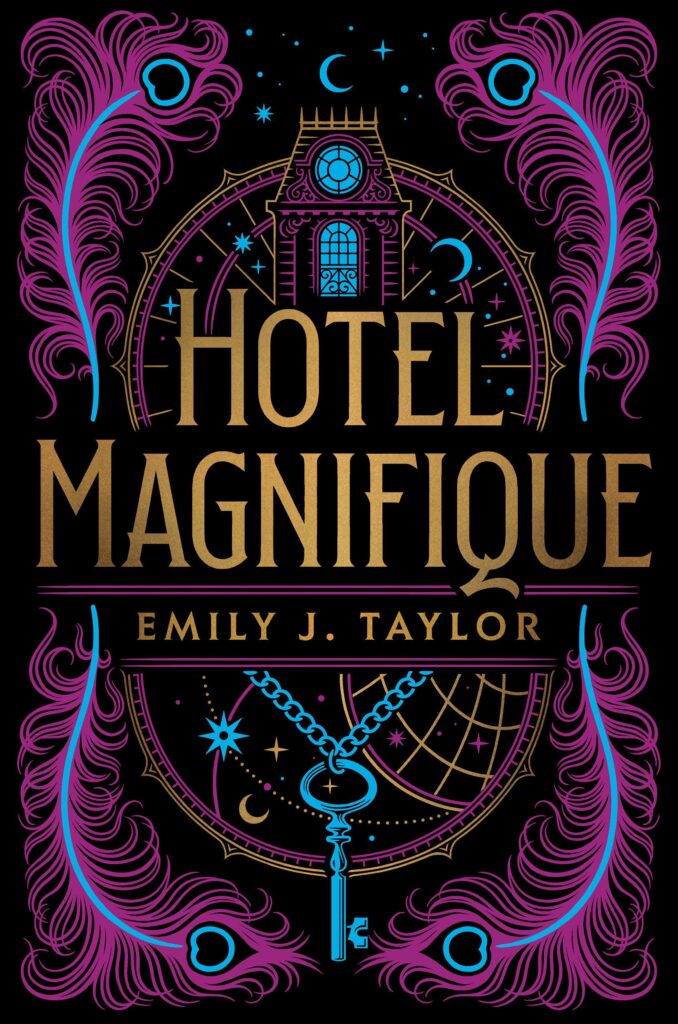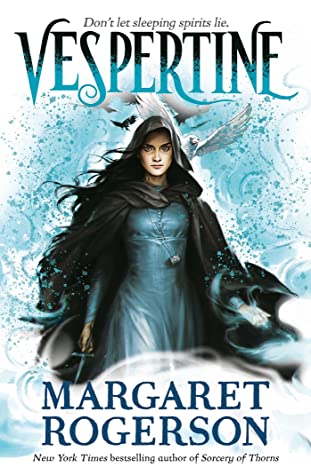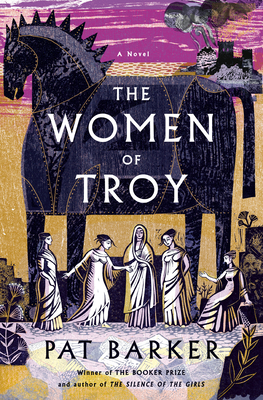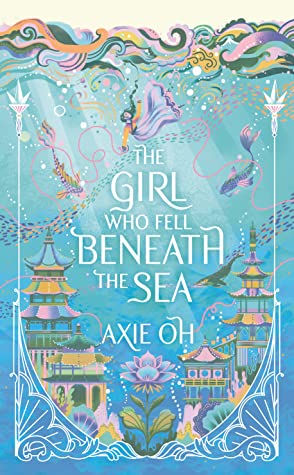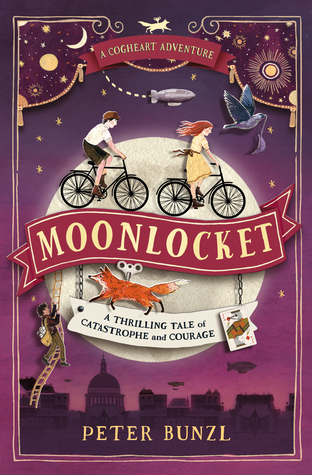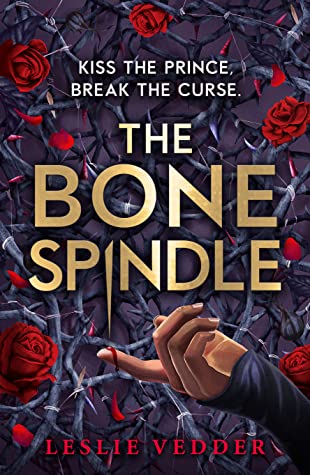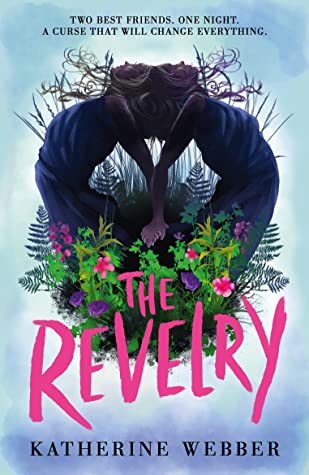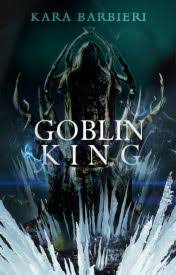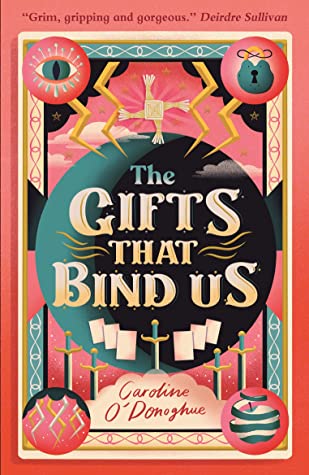-
Monday Minis
Happy New Year, lovelies! Starting off the new year right with a fresh bunch of Monday Minis for your enjoyment. As always – many thanks to the publishers for sending me eARCs of these titles, all opinions are my own.
Hotel Magnifique by Emily J. Taylor is pretty magical. I adored this when I started it, even if it felt like the magic of it started wearing off a bit once I got stuck into the story. This is the story of 17 year old Jani, and her younger sister Zosa, who are trying their best to get by as orphans – until the Hotel Magnifique comes to town, and they see a chance to escape into a world of magic and mystery by signing on as staff. But not everything there is quite how they imagined it, and Jani soon finds herself alone and having to face bigger challenges than she ever imagined if she wants to see her sister again and figure out how to help the other employees. And initially I was extremely taken in by the story and worldbuilding, and charmed by Bel, the love interest. As the story went on though, I got a bit disillusioned with everything – mirroring Jani’s journey in the book I guess – and felt like it leaned too much on classic YA tropes, and certain things just ended up working out too neatly. I found the story ultimately was too predicable for me to unreservedly enjoy it, and there weren’t enough characters of substance to care about. There were some details I was still wondering about by the end, but as I read an ARC, I suspect those are the type of things that will likely have been addressed in the final copies. So all in all, a flawed but entertaining YA fantasy, a good way to spend an evening reading.
By all rights, Vespertine by Margaret Rogerson should have been a book that I adored. But just like her last novel, Sorcery of Thorns, somehow, I just did not click with it – maybe I should take that as a sign to stop trying and accept that this may be an author who is simply not for me, as much as the copy tempts me. Vespertine is the story of Artemisia, an apprentice nun, one of the Gray Sisters, who prepare the dead so their souls can pass on. When her convent is attacked, she ends up bonding with an ancient spirit bound to a saint’s relic and drawn into an epic fight. Think lots of bickering within Artemisia’s head between her and the spirit, unexpected bonding in various places, lots of moral gray areas, and greatness thrust upon our heroine in a grand quest. And I just don’t know why this didn’t do it for me. I started on the eARC, and struggled with it, and then went on to the audiobook which I did eventually finish, but feel very ambivalent about. I think it boils mostly down to me as a reader not meshing with this particular author’s style as, if I try to pinpoint where my issues lie, it largely is with a lack of emotional connection. I did find Artemisia rather annoying as she generally thinks she is always right and struggles to critically reflect on her own actions, so some of the interior monologues and conversations between her and the revenant ended up feeling repetitive. The other obvious issue I had with the story is that it felt like it had a romantic arc forced into the story that did not fit in there, between characters who do not have chemistry, and which, to me read more like ticking a box than something that grew organically. So all in all, a three star read for me.
I loved The Women of Troy by Pat Barker. After really enjoying The Silence of the Girls early in 2021, I slept on this one for far too long, considering I had an audiobook ARC, and I’m not only addicted to mythology retellings, but also audiobooks. However, I’d listened to another book narrated by the same narrator – a contemporary fantasy – shortly before, and she has a very distinctive voice, which kept throwing me off. But now that I got sufficient distance, I devoured the audiobook within just over a day. The story sets in after the fall of Troy, and covers the period until the Greeks depart. It is again largely told from the perspective of Briseis, Achilles’ war prize (though, of course, that great warrior is long dead now). Central themes are how to regain the Gods’ favour in order to return, the adequate disposal of King Priam’s body and continuing on from The Silence of the Girls, the treatment and the voices of the women of Troy, now slaves in the Greek camp. Pat Barker’s books are on the very literary end of the current boom in mythology inspired books, oriented very much towards an audience traditionally driven by awards and prestige, in contrast to the more commercially oriented Ariadne or Daughters of Sparta. As a nerd, I love that we get such a breadth of stories retelling mythology, reworking it to give the formerly voiceless more of a voice and not continually centering mediocre white men on their power trips (yes, for much of The Women of Troy I would have liked to slap Pyrrhus and knock some sense into him – never mind Menelaus and Agamemnon). Definite recommendation!
-
Little Fire – Hollee Mands
I’m seriously conflicted about this book. It felt like an emotional rollercoaster, where one moment I’m swooning from a heart-wrenching romantic scene, and the next moment I’m wincing from a graphic description of horrific abuse. What do I know for sure? That Little Fire is an adult, High Fantasy Romance novel with impressive world-building and a compelling romance. What am I not so sure about? How this book will land for others, or frankly, how it landed for me. I struggled with some of the triggering content and found the plot evolution, especially the end, disjoint and jarring. This review will simply outline my experience; it’s up to you to decide if this might be for you. Please note that this review contains references to content that may be triggering for some readers, most notably rape, child abuse, and human trafficking. All opinions are my own.
RELEASE DATE: 23/10/2021
STAR RATING: 3/5 ✶
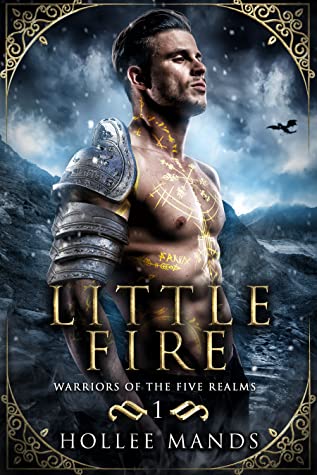
SUMMARY:
Declan can kill with a blink of his eye. Jaded and cold, he rules his kingdom the same way he does his heart—with merciless pragmatism. So why does he risk all to protect a little mortal during a slave-trade uprising? Now stuck in the Shadow Realm, the loss of his powers are the least of his troubles. The woman may have a frustratingly tender heart, but she has enough fire in her soul to thaw the ice in his veins.
He could take her by right, but he wants more than acceptance. He wants her willing surrender…
Evangeline is chained by a past she can’t remember. Her fractured memories keep her shy and single. When she is thrust into a demon realm in the arms of an indomitable archmage, he becomes her only chance of survival. But soon, she realizes her unnerving protector may not be as callous as he appears, and her heart may be as much at risk as her life.
His desire for her is no secret, but she wants more than scalding lust. She wants his icy heart…
Can they survive the Shadow Realm long enough to break down each other’s walls?
OPINIONS:
There were two stand-out elements of this book: the world-building and the romance. The world consists of five realms each ruled and shaped by a different god and filled with fantastical beings and magic specific to that realm, and travel between the realms can only be accomplished through portals opened by the Fae. The realm in which our story begins is the home of the humans and mages, human-like beings with elemental and psychic powers, the most powerful of which are the archmages that rule with an iron fist.
The concept of the realms is introduced right off the bat with a poem, which I thought was a clever way of laying the groundwork for the world-building. Details of the world and magic were slowly introduced over the course of the book without info-dumping, which I appreciated. With the detailed descriptions of monsters and the abilities of the mages, it walks the line between soft and hard magic – in fact, I think it wants to have a harder magic system than it actually does – and this is not necessarily a bad thing. I sometimes like a harder magic system. But the problem was that it felt secondary despite being so well fleshed out. There was so much emphasis on the trauma and slavery (more on that later) that the detailed world-building felt tacked on, almost as if it was a separate entity within the story. The culmination of the plot takes place when the FMC and MMC are thrust into the realm of the Unseelie for the final battle, and suddenly – jarringly, in fact – that world-building comes to the forefront of the plot. It felt disjoint, and I found myself wishing for greater continuity.
I really enjoyed the romance between Declan and Evangeline. It developed slowly and organically, stemming from a tenderness between the two characters (as opposed to lust) as they care for one another during their exile in the demon realm. He is respectful of her trauma, never pushing himself on her, and genuinely just wants to be in her presence. They don’t become intimate until she asks for them to be, and the respsect and consent is incredibly sexy, especially given the context of both of their past struggles. The archmage is incredibly powerful, yet tempers his authoritarian ways to properly “court” Evangeline (the flower scene turned me to mush!) realizing that what he really wants is her willing participation. The relationship reveal at the end was a bit contrived and, I’ll admit, predictable, but nevertheless satisfying and filled with genuine emotion.
Now for the difficult part. This book is heavy into rape trauma, child abuse, and human trafficking. A large portion of this book revolves around dealing with the aftermath of rape (both from the perspective of the survivor and a resulting child) and physical abuse of children. Central to the plot is the trafficking of humans to be sold as slaves by the Unseelie to other realms and the sexual and physical abuses done to those slaves by members of the cartel and their owners. If these themes are triggering, or if you don’t have a stomach for explicit content describing such atrocities, this book probably isn’t for you.
Declan and Evangeline spend significant page-time coming to terms with their own trauma, dismantling the human trafficking cartel, and tending to the abused victims that they save. Their emotional scars – as well as the physical and emotional scars of the victims they save – are present, deep, and not glossed over. All that to say, these difficult themes are not employed gratuitously, but tackled head-on and given careful treatment throughout the book.
The writing was solid, and in some places I found it quite pleasurable, but there were times I found the language and word choice a bit forced. An inconsequential quibble in the grand scheme of things.
Will I read on in this series? Honestly? The jury is still out…
-
Our 2021 Favorites
Libri Draconis has grown quite a bit in 2021. We now have four bloggers, each of whom brings something special and a little different to our team, and the richness of our content and the people we reach has expanded as a result. We couldn’t be happier or more grateful for how everything evolved this year; thanks to all of our readers for joining us on this journey!
As 2021 comes to a close, we wanted to share our favorite reads from the past year. We all read – and reviewed – quite a few books, and it was somewhat torturous to limit ourselves to only two favorites a piece. But! We perservered and here are Libri Draconis’s favorite books read in 2021.
Fab’s Picks
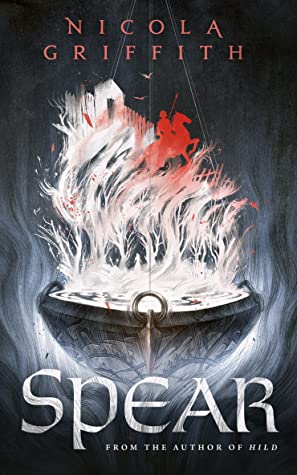
Spear by Nicola Griffith – I wouldn’t be me if I didn’t end up picking a book that isn’t actually released for another four months. Spear by Nicola Griffith is out from Tordotcom in April, and is basically the queer Arthurian book of my dreams. It is a short novella, but manages to achieve what many hefty tomes don’t: it tells a complete and satisfying story in under two hundred pages. My only gripe was that I wanted more, not because the book was lacking in any way, but because the writing and worldbuilding was so wonderful that I wanted to stay in this queer and diverse interpretation of the early middle ages Griffith so vividly evokes just a little longer. And I probably should mention that the book also has one of my favourite things in the world: illustrations in a story aimed at adults. Interspersed with the narrative are gorgeous illustrations by Rovina Cai, who is one of my favourite artists in the fantasy genre. So an all-around hit, and one you should most definitely pre-order.
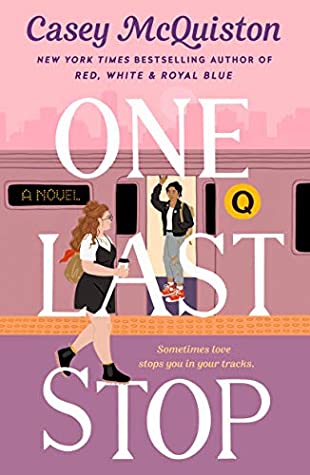
One Last Stop by Casey McQuiston – There were a lot of books that could have occupied this slot – really all of the honorable mentions. But I decided to go with what has been my comfort book in this year of craziness. I have listened to the audiobook of One Last Stop by Casey McQuiston three times already and it is just such a delightful and comforting romance with supernatural elements. Both August Landry and Jane Su are wonderful characters, and I may be a little bit more than slightly in love with Jane myself. While the general tone is uplifting and cosy, McQuiston manages to touch on a lot of the fundamental insecurities of today’s generation of young adults, coming into working life from university and that really made me connect with the book on an emotional level. I cannot recommend this one enough.
Honorable Mentions: Sistersong by Lucy Holland, The Second Bell and The Wind Child by Gabriela Houston, Travelers Along the Way by Aminah Mae Safi, The Witch’s Heart by Genevieve Gornichec, A Master of Djinn by P. Djèlí Clark, Girls of Fate and Fury by Natasha Ngan, The Cabinet by Un-Su Kim, The Mirror Season by Anna-Marie McLemore, Honey Girl by Morgan Rogers, and oh SO MANY OTHERS. 2021 has been such an excellent year for books, and these choices have been extremely hard to make (I am probably going to hit my goal of 500 books read this year, so there is A LOT to choose from)!
Anna’s Picks
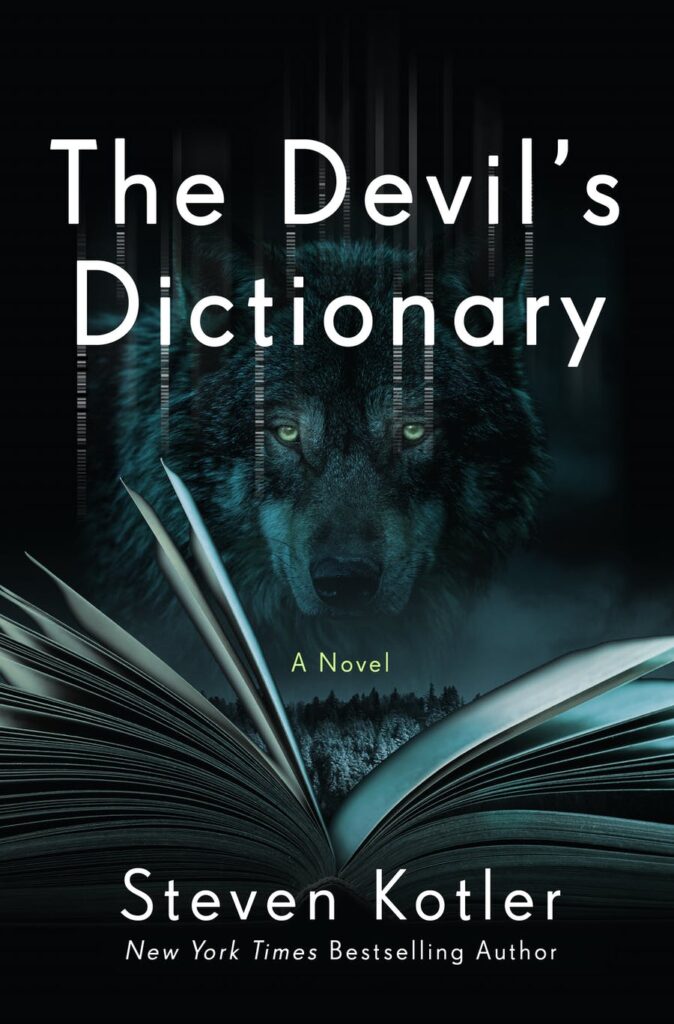
The Devil’s Dictionary by Steven Kotler – What would you do if you could empathise with a dolphin? or a bat? What would other people do if they couldn’t? Against the backdrop of an eroding species barrier, em-tracker Lion Zorn, whose abilities allow him to read the emotional trends of crowds, tries to unravel the mystery around the disappearance of his colleagues.
It’s an exceptionally powerful read, with great dialogue; and, despite the tension, I still laughed out loud in multiple places. The premise of an emotion-based near-future sci-fi is also new and exciting. A clear favourite of the year for me.
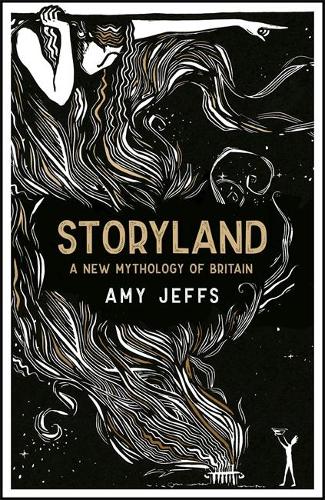
Storyland by Amy Jeffs – These are retellings of medieval tales of legend, landscape and the yearning to belong, inhabited with characters now half-remembered: Brutus, Albina, Scota, Arthur and Bladud among them. Told with narrative flair, embellished in stunning artworks and glossed with a rich and erudite commentary… It Illuminates a collective memory that still informs the identity and political ambition of these places (Hachette).
Amy Jeffs’ Storyland is as visually striking as it is expertly researched. The illustrations and tritone decorations bring to mind the grimoires of old: this book of myths is an artefact in its own right. Another reason this is one of my favourite reads of 2021 is the sensitivity with which the tales, taken from historical sources, are updated and reimagined. You can read mine and Fabienne’s thoughts here.
Honorable Mentions: Spear by Nicola Griffith; The Second Bell by Gabriela Houston; Comfort Me with Apples by Catherynne M Valente; Sistersong by Lucy Holland, and Frank Herbert’s Dune (not because it’s new, but because I finally slogged through it and feel rather proud).
Kat’s Picks
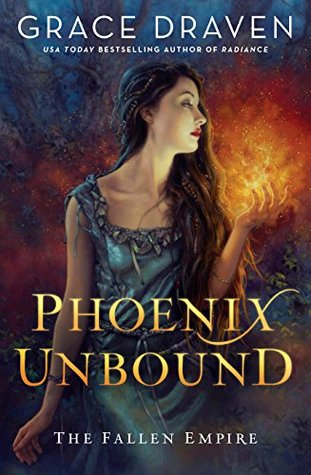
Phoenix Unbound by Grace Draven – Everyone knows I’m a massive Grace Draven fan (for full evidence, see my essay here). But this book immediately rose to the top, taking the first place seat across all her full-length works. Not only that, it was hands down my favorite book read in 2021. It has all the hallmarks of a Grace Draven novel – prose, world-building, steam – but what really stood out to me (and wrecked me for days after) was the Romance. The characters are survivors of deep trauma – these are two deeply broken souls. And yet they perservere. They keep surviving. They rise above their pasts with the help of each other and the help of community to find a new path for themselves and, as canon epic fantasy, a future for their world. They find love, in the most unlikely of circumstances, and they are both the better for it, individually and as a couple. Absolutely beautiful, poignant, and well-crafted Fantasy Romance.
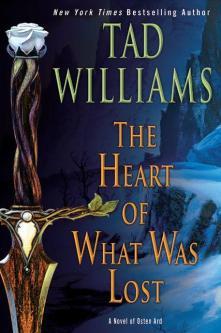
The Heart of What Was Lost by Tad Williams – I know, I know – I’m so behind. This (comparatively) short novel of Osten Ard came out in 2017, but I didn’t read it until this year, and you’d expect Brothers of the Wind, which came out in 2021, to be on this list instead. Alas, it’s sitting on my Kindle and I just haven’t gotten to it yet. Better late than never, right? No surprise that my second favorite book of 2021 comes from another favorite author of mine – Tad Williams. The story of what happens after the epic battle at the end of To Green Angel Tower provides a thought-provoking look at both the history of the Norns and the atrocities of war. The writing, world-building, and masterful use of POVs all contribute to creating deep empathy for the various characters on both sides of the siege and their plights. It was a pleasure to return to the world of Osten Ard, and hopefully I will be able to do so once again sooner rather than later!
Honorable Mentions: Girl Meets Duke series by Tessa Dare; Piranesi by Susanna Clarke; The Hunter by Kerrigan Byrne; Best Served Cold by Joe Abercrombie; Devil in Winter by Lisa Kleypas; A Matter of Class by Mary Balogh; The Labyrinth Gate by Kate Elliott; Beautiful Player by Christina Lauren
-
Monday Minis
I hope you had a wonderful Christmas if you celebrate, and I wish a happy New Year to all of you lovely people. Time for another round of Monday minis, and many thanks to all the publishers for sending me eARCs of these books – even if they ended up not working quite as well for me as I hoped.
The Girl Who Fell Beneath the Sea by Axie Oh is one of those books that I desperately wanted to fall in love with but ultimately ended up feeling pretty ambivalent about. It is a Korean-inspired fairytale about a girl who sacrifices herself to marry the Sea God to save her family and broader community and gets more than she bargained for in the process. It is well-written and lyrical, and reads pleasantly. Picking this one up will make for an evening well-spent, as it is an entertaining and compelling book, but it doesn’t feel like a must-read to me. My main gripe with it is that the characters really aren’t that fleshed out, which in a poetic tale like The Girl Who Fell Beneath the Sea makes or breaks the story for me personally. I never felt like I got to know who Mina is as a person other than a quite generic YA heroine who is self-sacrificing, brave and cares for her family and community. For me, this was a three star read, but I can see it working much better for readers who aren’t quite as character-oriented as I am.
I didn’t connect to Moonlocket by Peter Bunzl at all sadly. I did quite enjoy the first in the series, Cogheart, when I read it a while ago, though maybe it did have the same issues I noticed with this and I’ve just glossed over in my memories. This is a middle grade fantasy series set in Victorian London, around a girl with a mechanical heart, her mechanimal pet, a fox called Malkin and her best friend. In this volume, they are trying to track down the best friend’s mum, who had abandoned him as a small child, and find themselves embroiled with a legendary criminal and the hunt for a priceless artifact belonging to Queen Victoria herself. While this sounds rather exciting by itself I felt that the writing wasn’t as good as the concept. The story lost tension in clunky phrasings and telling rather than showing, and personally, I felt that it would have needed another rigorous set of edits. And as there are quite a number of Victorian-set middle grade adventures, I don’t think this one stands out from other books in the space. I do have to say that I ultimately did get invested in the ending, and ended up giving it a rounded up three stars.
The Bone Spindle by Leslie Vedder was one of my picks on the 2022 Megapost, so I was thrilled when I was approved for an eARC and read it the same day. But however much I tried to love it… I just didn’t. As a whole, the story felt superficial and the characters flat. Fi and Briar, the main couple in the story just didn’t have any chemistry and I honestly couldn’t stand Briar, who was the type of shiny YA boy without flaws. The only interesting character was Shane, and even she was mainly “not like other girls” and largely built around rejecting her previous life. I think there was a really cool concept in here, but it would have needed another thorough structural edit to really shine. As it is, it felt like quite lacklustre to me, and I wouldn’t really recommend picking this one up – though it may work better for other readers!
-
Star Mother – Charlie N. Holmberg
This book is beautiful. I know, I know – what a generic word – such a trite description. But, honestly? When I finished this book, and when I reflect on its themes, its tone, and the impressions it left upon me as a reader, its the word I keep coming back to. Star Mother is truly and simply a beautiful book. It is a compelling piece of feminist fiction on par with Circe by Madeline Miller both in terms of style and message, deeply exploring themes of love, motherhood, and devotion amid world-building that develops and reveals itself through an enigmatic plot. Highly recommend. I received an ARC of this book from the publisher. All opinions are my own.
RELEASE DATE: 01/11/2021
STAR RATING: 4/5 ✶

SUMMARY:
When a star dies, a new one must be born.
The Sun God chooses the village of Endwever to provide a mortal womb. The birthing of a star is always fatal for the mother, and Ceris Wenden, who considers herself an outsider, sacrifices herself to secure her family’s honor and take control of her legacy. But after her star child is born, Ceris does what no other star mother has: she survives. When Ceris returns to Endwever, however, it’s not nine months later—it’s seven hundred years later. Inexplicably displaced in time, Ceris is determined to seek out her descendants.
Being a woman traveling alone brings its own challenges, until Ceris encounters a mysterious—and desperate—godling. Ristriel is incorporeal, a fugitive, a trickster, and the only being who can guide Ceris safely to her destination. Now, as Ceris traverses realms both mortal and beyond, her journey truly begins.
Together, pursued across the Earth and trespassing the heavens, Ceris and Ristriel are on a path to illuminate the mysteries that bind them and discover the secrets of the celestial world.OPINIONS:
Star Mother is a book about devotion; Ceris Wenden’s is a journey of continual self-sacrifice due to her unflappable devotion to self, community, and search for true love. This book asks the question: what are you willing to endure for integrity? And the example of endurance provided by the main character is quite powerful.
Ceris is devoted to herself, unwilling to compromise her personality or her desires, and yearning to be appreciated for living her life authentically. She is devoted to her community, sacrificing her body and future to the Sun in order to preserve her town and the true love that exists between her betrothed and his lover. She is devoted to her family, desperate to fulfill her role as a mother and fighting for a connection with her star as well as her family’s descendents, even after losing 700 years. And once she unexpectedly discovers true love in Ristriel, she is willing to endure whatever it takes, including 350 years of separation, to finally experience a life filled with the unconditional love and acceptance she’s searched for her entire life.
These themes of devotion and self-sacrifice, and the exploration of true love in all its forms, are set against a backdrop of well-executed, Fantasy world-building and plot. Holmberg has crafted a creative and unique world in which celestial objects are in fact deities that wield immeasurable power, and yet are still bound to the laws of the universe, providing rich fodder for moral dilemmas. The mystery behind the war between the Sun and the Moon as well as the impact of the war on both Ceris and the people of Mother Earth drives a plot that, while deliberate in its build-up, is well-paced once the foundation has been laid.
There were times I found the writing a tad overwrought and repetitive, but overall I felt that the prose helped deliver a tone that meshed well with the themes and enhanced their poignancy. For Romance readers, there is a love triangle, which did strain the HEA, but I would still solidly classify this as Fantasy-Romance. The HEA was also bit rushed for my taste, especially since it was so hard won; I would have liked to see a more developed and fleshed out ending, but it was satisfying nonetheless. These are but minor quibbles in a book that was well executed and quite beautiful.
I was delighted to see that there will be a sequel to Star Mother, especially after reading the synopsis. I think this second book will be a perfect conclusion to this tale and provide additional satisfaction to the HEA. I am genuinely looking forward to reading it!
-
January Hype Post!
Welcome to the third year of monthly hype posts! As a reminder, check out the massive all-encompassing 2022 post HERE – we’re going to try and not repeat books except to point you towards reviews we’ve written to try and give as many books the space to be featured, especially early in the year. From there, I’d like to mention Daughter of the Moon Goddess by Sue Lynn Tan, which I’ve reviewed over on Grimdark Magazine – check out the full review here. But without further ado, this is what the team is excited for in January.
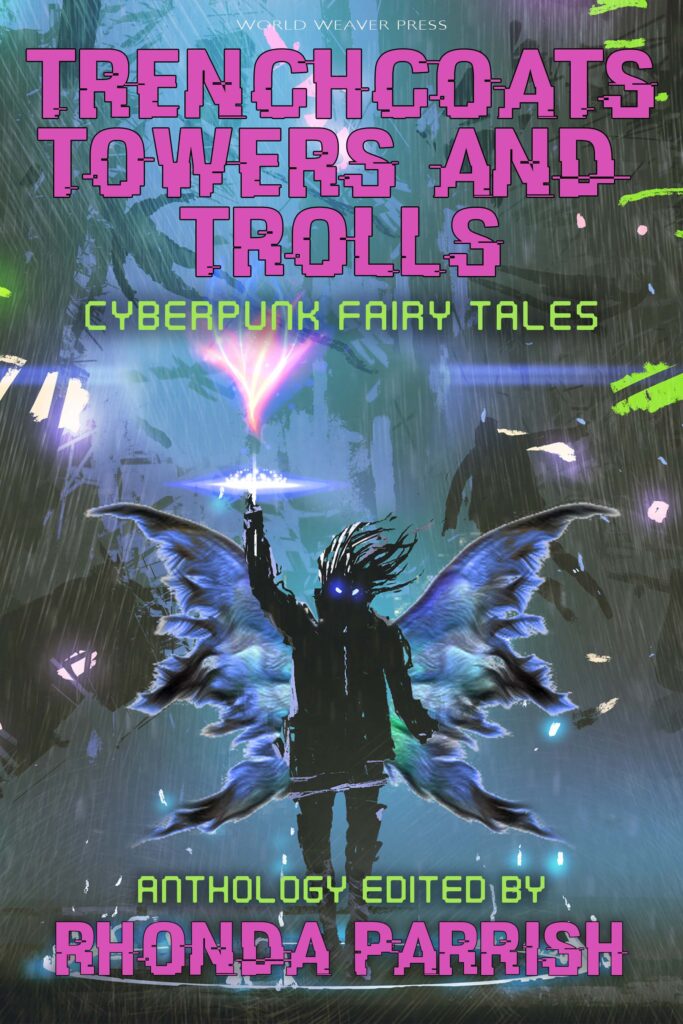
Kat: Rhonda Parrish is the undisputed Queen of Canadian Speculative Fiction Anthologies, and on January 11th, she will be releasing the third installment in her Punked Up Fairy Tales series Trenchcoats, Towers, and Trolls. With this series, we’ve already seen retellings in the diesel/decopunk and steampunk/gaslap styles, and now with this new anthology, we’ll be introduced to a collection of cyberpunk-inspired fairy tales – both original stories and new spins on familiar favorites. Parrish is adept at curating themed anthologies, and I have no doubt this installment will provide a variety of cyberpunk tales that will engage any fan of the subgenre. You can pre-order Kindle or Paperback copies of this anthology from Amazon.
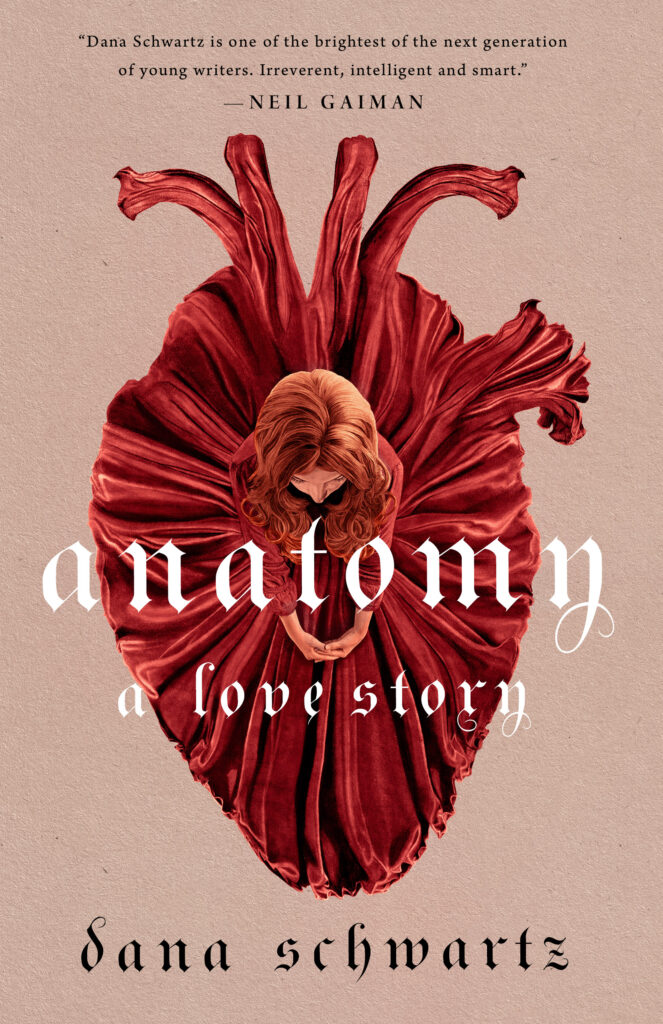
Fab: Anatomy: A Love Story by Dana Schwartz has an incredibly stunning cover. It got my attention just based on that already – out on January 18th, this is the story of Hazel, who wants to become a doctor more than anything else in a time when women aren’t allowed to attend university. But she manages to convince a renowned professor to break the rules if she can pass an anatomy exam beforehand. So it’s a good thing she’s just met Jack, a resurrection man, one who digs up corpses to sell… But Jack has his own problems: there are strange men hanging around the cemeteries, and his friends are disapearing off the streets. Set in the early 19th century in Edinburgh, the story promises murder, bodies acquired both legally and illegally and of course mystery and tension in spades. Pre-order a copy from Book Depository here.
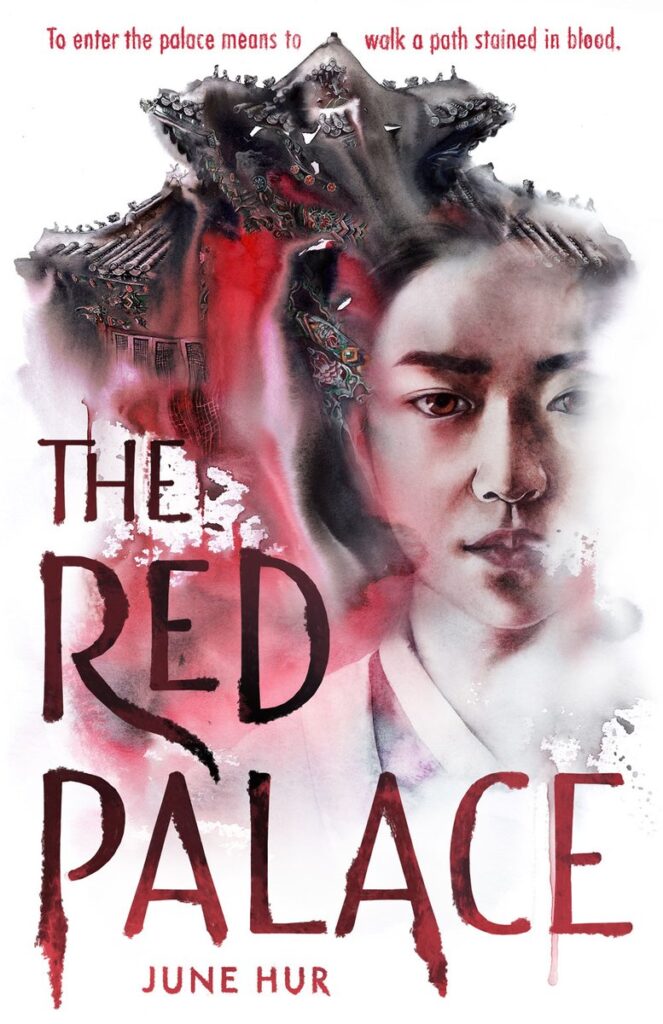
Fab: The Red Palace by June Hur, out on the 25th, is another very intriguing historical novel. Set in eighteenth century Korea, Hyeon is an illegitimate daughter with few options traditionally open to her. But she has persevered and crafted herself a place as a palace nurse – until she is thrown into the world of palace intrigue and politics when there is a string of murders and her best friend and mentor is accused of being the culprit. To save her mentor, Hyeon has to work fast and diligently to find the true murderer, and it looks like it may be someone very powerful indeed… This sounds brilliant and like a book that will keep me up reading late into the night – while showing me a world I don’t know much about. I can’t wait to learn more about Korean historical culture and dive into Hyeon’s story. Pre-order this via Book Depository here.
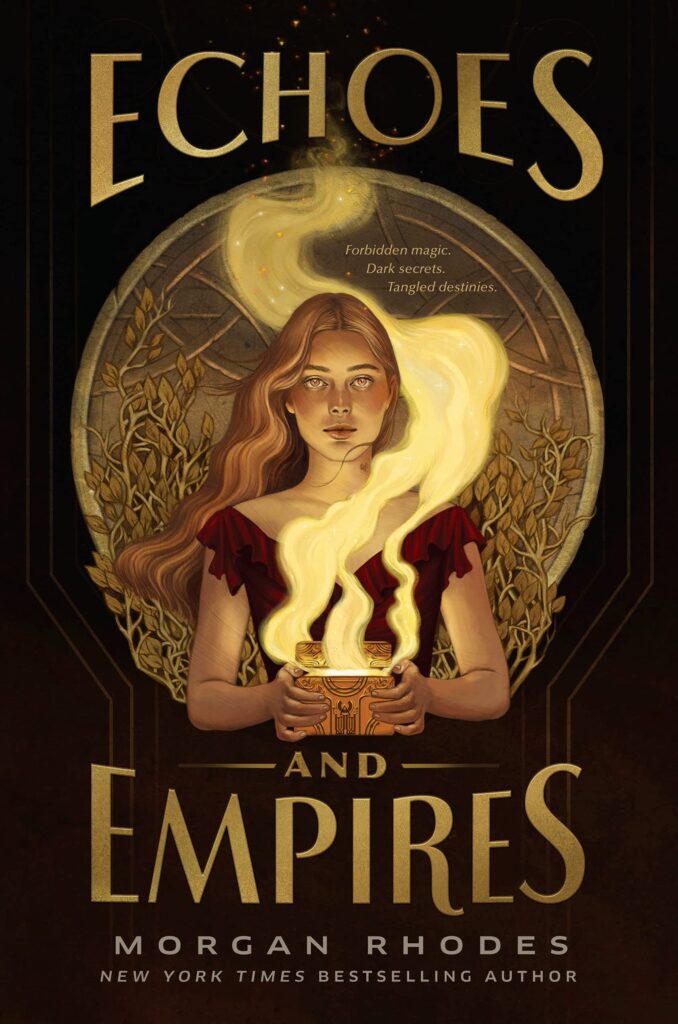
Fab: I’m a sucker for a good YA fantasy that I can get stuck into and read obsessively. And Echoes and Empires by Morgan Rhodes, out on the 4th of January sounds like it fits that bill perfectly. Just read this tagline: “A snarky seventeen-year-old must team up with an enigmatic criminal to cure herself of dangerous forbidden magic” – that sounds brilliant and addictive. It’ll probably not be the deepest of books but I don’t need it to be. I just want to be entertained and have an evening well spent with a fun book. Josslyn gets accidentally involved with dangerous magic – which may cost her her head in more than one way – and is desperate to rid herself of it as soon as possible. And the only person who seems to be able to help her is the wanted criminal Jericho Nox, who is as infuriating as he is handsome… Pre-order this one from Bookshop here (affiliate link).
-
Frankie’s World – Aoife Dooley
If you’ve followed me for any length of time, you know that books by neurodivergent authors, and especially ones featuring neurodivergent characters are very dear to my heart. So I was thrilled when I was offered a copy of Frankie’s World by Aoife Dooley for review – this middle grade graphic novel features an autistic main character who is trying to figure out why she isn’t quite like the other kids in her class, all the while trying to track down her dad with her friends.
Many thanks to Scholastic for sending me a review copy, all opinions are my own.
RELEASE DATE: 06/01/2022
STAR RATING: 4/5 ✶
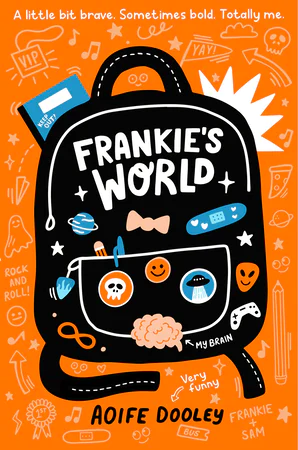
SUMMARY: Twelve-year-old Frankie knows she’s not like anyone else in her class: she’s different, but she can’t quite figure out why. Is it the new freckle on her nose, or the fact she’s small for her age? Or that she has to go to the hospital sometimes? Everyone else seems to think she’s weird too, and they make fun of her at school. Frankie’s dad left when she was a baby – maybe he was different too? It would explain why she always feels like an alien. So she and her best friend, Sam, embark on a mission to track him down. (from Scholastic)
OPINIONS: Frankie’s World is a delightful middle grade graphic novel about the titular character’s journey of self-discovery and self-acceptance in two-tone shades of orange and blue. It is the sort of book I would recommend both to children struggling with fitting in, with finding their place in the world, but also to those who do tend to fit into the mold of social acceptance, who could perhaps do with a bit of understanding for those who don’t. Aoife Dooley tells Frankie’s story with compassion, influenced by her own experiences of growing up autistic and not knowing it until adulthood.
But this is also a story of family and of friendship. A central theme is that Frankie has never met her dad – while she has a wonderful stepfather, she is of course morbidly curious about her ‘real’ dad (who she suspects may be an alien, as he must be odd to have fathered her). With her best friend, Sam, and her new friend Rebecca, Frankie goes on a hunt – and does eventually track him down, to get some unexpected answers. The friendships between Frankie, Sam and Rebecca are lovely to see, and while all three girls are disabled in different ways, the story doesn’t show them to be limited in what they can achieve or want, which I really appreciated. Frankie’s World is just a really uplifting story about the value of acceptance, family and friendship, and one that I think is valuable for so many young readers.
I think having it in graphic novel format is particularly effective as it makes the story even more approachable for children who may be reluctant readers, who may struggle with focus (which is an issue for some neurodivergent children especially) or just appreciate the added visual element. All in all, this is a fabulous book that I highly recommend to anyone, and hope many families, libraries and schools pick up a copy as soon as it is out.
Add Frankie’s World to your Goodreads here, and pre-order a copy via Bookshop here (affiliate link).
-
Monday Minis
And another (manic) Monday! I started working as a bookseller last week and things have been just a tad insane since then. But one of the many things I love about my job is that most of us spend our lunch breaks reading in companionable silence in the staff room. So thanks to the publicists for sending me eARCs of these titles via NetGalley, and as usual, all opinions are my own.
The Revelry by Katherine Webber is a UKYA contemporary fantasy out from Walker Books in February. It is set in a small town, where each year, a so-called Revelry takes place – a party in the woods, shrouded in mystery and legend. Bitsy and her friend Amy sneak in, and after the party, Bitsy’s life starts to unravel through bad luck while Amy rides a wave of good fortune. So Bitsy starts to convince herself that they are bound together through a curse only she can break. There are some really good ideas in there, especially around the mystery of the Revelry and the history of it, and the way it has impacted the society in their small town, but I felt like these aspects ultimately ended up not being given enough space in the story. Most of the plot revolved around a constant circle of Bitsy having a spell of bad luck while things went well for Amy, Bitsy getting upset, the girls fighting and soon making up again because they have been best friends forever. And then the same thing again. So while the concept was really interesting, the execution wasn’t for me.
Goblin King by Kara Barbieri is the follow-up to her debut, White Stag. It follows Janneke’s story after the events of the first book, because as we all know, just because the big fight is won doesn’t mean the war itself is over. These books are very loosely inspired by Norse mythology, though it’s more of a vague setting and references to beliefs and concepts rather than heavy-handed cultural influence. I really enjoyed reading this one, even if it has been rather too long since I read the first book and I definitely ended up missing out on quite a bit of the nuance just because I didn’t remember many of the details from the last arc. But this crossover fantasy series – I’d say it’s probably closer to new adult than proper YA – is a lot of fun and has some great characters. I loved how mature Janneke and Soren’s relationship is, and how they actually talk through issues (persistent problems that can easily be solved by communicating are one of my pet peeves). This series is more on the romantic end, but if you like that and epic-ish fantasy, it might be a good one to check out!
I loved The Gifts That Bind Us by Caroline O’Donoghue. This is the second book in her tarot-inspired contemporary fantasy series, and I think it’s one of the most thoughtful, mature YA fantasies out there. It is more focused on the implications of events, on mental trauma and small-scale relationships and impacts rather than sweeping plots and fast-paced adventures, which is a welcome change and makes this stand out in the market. I think I liked this one even more than the first book as it delved deeper into trauma and consequences, and really dared to lean into slower pacing – but no less tense story-telling. The gang from the first book is back here, Maeve, Roe, Fiona and Lily, but we meet a host of new characters too, both positive and negative, all of them nuanced and complex. And it’s lovely to get books set in small-town Ireland rather than US or UK as is far more common. A wonderful YA series that I’d highly recommend!
-
The Wind Child – Gabriela Houston
I was a massive fan of Gabriela Houston’s adult debut, The Second Bell, which was released earlier in 2021, so of course I could not resist the opportunity to review her children’s debut, The Wind Child as well. And damn, this is a great book. When I started it, I was just going to read a couple of chapters as a taster, but I raced through it, blundering my way through the London Tube system, kindle in hand, non-stop reading. Get on the Gabriela Houston train, friends. And if you have kids distracting you from reading, either get this one to share with them, or to distract them while you go off to read The Second Bell, whichever option you prefer.
Many thanks to UCLan Publishing for sending me an eARC via NetGalley, all opinions are my own.
RELEASE DATE: 03/02/2022
STAR RATING: 5/5 ✶
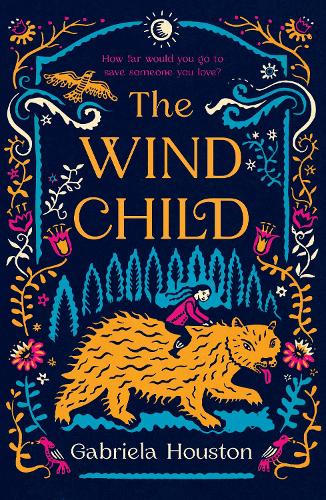
SUMMARY: No human has ever returned from Navia, the Slavic afterlife. But twelve-year-old Mara is not entirely human. She is the granddaughter of Stribog, the god of winter winds and she’s determined to bring her beloved father back from the dead. Though powerless, Mara and her best friend Torniv, the bear-shifter, set out on an epic journey to defy the gods and rescue her father. On their epic journey they will bargain with forest lords, free goddesses from enchantments, sail the stormy seas in a ship made of gold and dodge the cooking pot of the villainous Baba Latingorka. Little do the intrepid duo know of the terrible forces they have set in motion, for the world is full of darkness and Mara will have to rely on her wits to survive. (from UCLan Publishing)
OPINIONS: This is such an entirely wonderful book. Not only is it an immersive story full of great characters, but I learned a lot about Slavic mythology along the way – and I love learning new things. This is a rather short middle grade fantasy adventure, which makes it perfect for young readers, and especially reluctant readers as well. It is addictive – I got stuck into it so much that I could not stop reading until I was done, which for me, is one of the crucial elements of a great children’s book. I found this to be an uncontested five star read – the only thing I could imagine being improved about it is to add some interior illustrations, which is more of a publishing thing rather than a criticism of the book itself, added value, not something that detracts from it now.
One of the things I loved most about The Wind Child is the emotional impact the story had on me. Mara sets out on this grand adventure to try and achieve the impossible, to try and get her recently deceased father back from the afterlife. The ending of the story is both heartbreaking and heartwarming and is the best possible way the book could have resolved. It had me crying in the best possible way (though that may have been connected to reading a dead parent book around the ten year anniversary of my mum’s passing as well, making me more emotionally susceptible to the topic).
Mara and her friend Torniv are fantastic characters. They are not all-powerful, but they are stubborn and they don’t accept no for an answer, and they are determined to succeed. It was a joy to follow them on part of their story, and I wish that we got to spend more time with them. I loved The Wind Child just as much as Gabriela’s adult debut, The Second Bell, and if you have a child in your life, I highly recommend you get them a copy, and either read it with them, or let them read it while you read Gabriela’s other book. She truly is a writer to look out for, and one that I think will go far.
Add The Wind Child to your Goodreads here, and pre-order a copy via Bookshop here (affiliate link).
-
Dark Wizard – Jeffe Kennedy
There’s something to be said about a book that truly surprises its readers with an unexpected message. Dark Wizard by Jeffe Kennedy certainly falls into that category. I went into this book assuming classic Fantasy-Romance content, and while the book certainly delivered on genre expectations, it genuinely surprised me with how it tied romance into its unique world-building and magic system and used it as a social commentary on slavery and self-worth. Thought-provoking and sometimes necessarily uncomfortable in its message, Dark Wizard is the first book in Kennedy’s Bonds of Magic series. All opinions are my own.
RELEASE DATE: 25/02/2021
STAR RATING: 4/5 ✶

SUMMARY:
Lord Gabriel Phel wants one thing: to restore his shattered House to its former station in the Convocation’s complex and arcane society. Fortunately, through a wild chance of birth, he was born with the magic of a powerful wizard, the first in his family in generations. If he can obtain a familiar to supplement his skills, ideally one who is a highborn daughter who can also be his lady wife, then he’ll be that much closer to restoring House Phel. And to exacting his ultimate revenge on the Convocation that destroyed his family.
Lady Veronica Elal doesn’t have many choices. To her bitter disappointment, she will never be the powerful wizard she and her father hoped she’d be. Instead Nic is doomed to be a familiar like her mother, a second-class citizen in the Convocation, and one destined to be bonded to a wizard, serving his purposes for the rest of her life. Her one hope lies in entering the Betrothal Trials—and choosing a wizard from the Convocation candidates that she can manipulate. Whichever one of her suitors impregnates her will claim her as familiar and wife, and she can use her wiles to rule her wizard master, and the House she marries into.
But Gabriel throws a wrench into Nic’s careful scheming, by seducing and fascinating her. When she finds she’s pregnant by the rogue wizard she can never hope to control, Nic does the unthinkable: she runs.
OPINIONS:
At its core, Dark Wizard delivers a powerful message about slavery, self-worth, and how our world view and possibilies for self are shaped through the lens of our upbringing and societal expectations. Kennedy’s world-building focuses on a magic system and a social structure that has developed around that system. In this world, magic is the purview of wizards – they alone can wield magic and they do so under the contracts of their particular house and the laws of the Convocation. But magic is also held by familiars, and this is where the conflict arises and the world-building gets interesting. Familiars can hold as much magic as a Wizard, but they can’t use it – their magic must be channeled for use by a wizard – creating an unbalanced power dynamic in which a familiar is magically bound in servitude to a wizard, their entire lives relegated to providing a fountain of magic for their wizard to pull from, having no agency to change their fate or shape a purpose of their own.
At first, I was taken aback and (honestly) a bit disgusted by the brutal concept of the Betrothal Trials. When a familiar is ready to be bonded to a wizard, they are paired each month with a new candidate to determine the couple’s “productivity” (so-to-speak) – they bed each other to find out if they can get pregnant, thereby ensuring a magical bloodline. If the pair gets pregnant that month, they are bonded, and the familiar enters a life of servitude to the wizard. If not, they are repaired, and the process continues until pregnancy occurs. Like I said, brutal. But once I got deeper into the book, I understood the Betrothal Trials to be part of the larger, complex world-building that really is an allegory for slavery and a construction necessary for delivering important messages about slavery and self-worth. I should point out that these pairings are not based on gender – the wizard-familiar bond can happen between any combination of genders, and I really love that Kennedy took gender out of this discussion all together.
The Romance plot of this book is interwoven with what I believe will be the ongoing series arc – dismantling the caste system enforced by the Convocation. Gabriel summarily rejects the ideals and strictures set up around the power dynamic betwen familiars and wizards, because his upbringing was not shaped by the Convocation. He doesn’t base his self-worth, or that of others, on magical potential. He wants to bond and marry Nic out of love and trust. Unfortunately, Nic’s upbringing was vastly different, and her entire life and world view has been shaped by the Convocation. She struggles with a relationship based in true love and trust, the very concepts to her impossible given the power dynamic and expectations of the wizard-fimilar bond. Can they ever be sure that they’ve truly won each other’s hearts, or are they merely compelled to each other by their stations? The contrast between Gabriel and Nic’s world views – the potential for new, versus the confines of the old – and the ideals that have been ingrained in them since birth form the basis of a fascinating relationship that has so much potential for both evolution and growth.
Another clever aspect of Gabriel and Nic’s relationship that stems from their upbringings revolves around Gabriel’s use of magic. Because he is new to the world of magic and wasn’t formally trained by the Convocation, he often forgets he’s an incredibly powerful Wizard, reaching for his sword instead of using magic. Nic was the top of her class at the academy, and even though she cannot use magic herself and is supposed to be “less than” a wizard, she has all the training and knowledge Gabriel needs to understand and use his skills, adding depth and nuance to this unbalanced power dynamic central to the book’s plot and themes.
For the Romance readers out there, this series does follow the same couple, and there are open questions at the end of the first book. There is significant room for an interesting evolution in both the relationship between Gabriel and Nic as well as their relationship to the Convocation, which makes the lack of a tidy HEA understadable and necessary. I’m looking forward to reading on in the series and seeing how this all unfolds!

